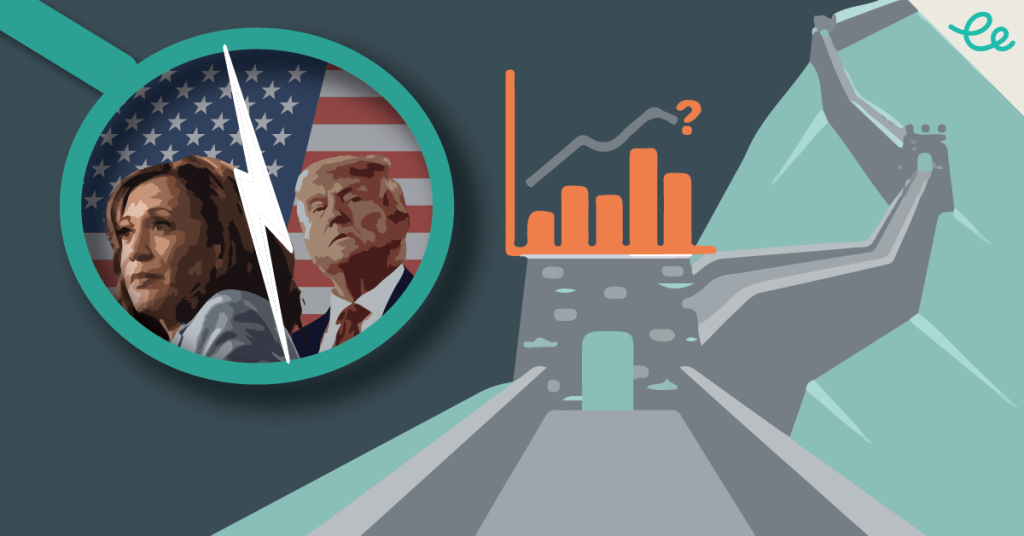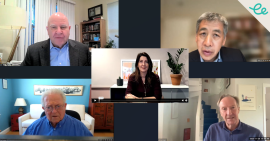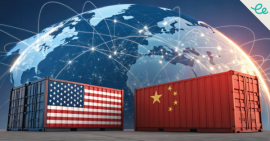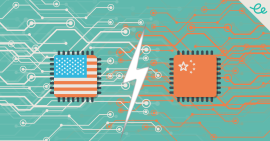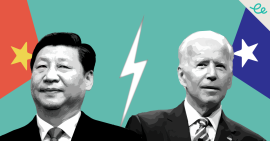US election may trigger tensions, tariffs and trade wars
The battle to be the next “leader of the free world” grabs attention across the globe, in democracies and dictatorships alike. The US remains a source of inspiration and exasperation for many countries worldwide, but especially China, the only rival superpower.
US officials say the threat now posed by China exceeds that of the Cold War era, when President Truman and his successors defined the “free world” in opposition to the communist bloc. Beijing has supplanted Moscow as Washington’s most pressing foreign policy issue, with multiple domestic implications. “It’s not just the military challenges. It’s across the board. It’s in the Global South. It is in technology,” worries Deputy Secretary of State Kurt Campbell.
For China, the US defines power to be matched, and even overtaken. The US is home to the best tech and weaponry, plus enviable economic growth and influence. Many Chinese would like their children to study there (Xi Jinping’s daughter did). But the US also leads Western efforts to “contain, encircle and suppress” China, as Xi and others have complained. Beijing says better relations are still possible – yet only if the US corrects its ways.
Unlock Critical Insights: Gain exclusive access to Enodo’s game-changing analysis and understand how this issue will reshape your world. Click below to register for a TRIAL ACCESS to our premium research.
Prayers for Trump (printed in China)
The US-China relationship is the world’s most important bilateral relationship, but this presidential race has hardly reflected that geopolitical weight. As the clock ticks down to another nail-biting night (with the threat of months of disputes to follow), China has not mattered that much to either candidate.
Trump even managed to source his “God Bless the USA Bibles” from the country led by an atheist Communist Party – long accused of restricting freedom of religious belief – with zero cost to his campaign. The $60 bible, made and shipped from China for just $3, bears “The Day God Intervened” on the cover, to memorialize the July 13 assassination attempt on the former president.
Yet despite China staying a relatively low-key campaign issue, Joe Biden’s successor has zero leeway to back down from his tough approach to China. Americans’ views of China have hit an all-time low, dropping significantly in the last two years. A majority (55%) of respondents to a new poll, say the US should actively work to limit the growth of China’s power.
Against that backdrop, Beijing and China watchers everywhere, including this blog, have been pondering which candidate is the lesser of two evils for the Party and bilateral relations.
Continuity vs Chaos
“It’s a common view among Chinese experts that Harris means more continuity, at least in the first one or two years of her presidency,” a former researcher in China’s army told Bloomberg. “Meanwhile, Trump means a wider scope of possibilities, better or worse, with lots of surprises and potentially more trouble for China, the US itself and its allies, and even the whole world.”
At Enodo Economics, we believe it’s too easy to assume that a Harris presidency will just be a continuation of Biden and his administration’s China strategy. Her less than effective time as vice president complicates efforts to assess her stance as well as her capabilities. But she has (mostly) blossomed on the campaign trail, and would present Beijing with a formidable challenge.
She would be more effective than Trump at reinforcing America’s global influence. She would also create a united front against China’s expanding reach, especially among the Global South. US allies, especially in Europe, are likely to be more inclined to make full-hearted commitments to American initiatives under a Harris presidency.
As Senator, she opposed the Trump administration’s trade war. However, she has advocated for stricter controls on technology exports and consistently criticised China’s industrial policies and intellectual property theft. Harris might have the political strength to remove Trump-era tariffs that do little to advance America’s economic strength.
“I’m f— crazy”
Trump has been living up to his volatile reputation, when asked about China and other issues. “I would say: If you go into Taiwan, I’m sorry to do this, I’m going to tax you, at 150% to 200%,” he told The Wall Street Journal. Would he use military force against a Chinese blockade of Taiwan? “I had a very strong relationship” with Xi, said Trump. “I wouldn’t have to (use military force), because he respects me and he knows I’m f— crazy.”
Trump previously threatened to impose up to 20% tariffs on all imports and 60% on Chinese goods. This would presumably be on top of the 25% levels already in place. He has described tariffs as a source of “billions” of dollars for childcare. He also claims they would lead to a stronger dollar and an economic renaissance. “To me, the most beautiful word in the dictionary is tariff,” he said on October 15. “It’s my favourite word. It needs a public relations firm.” Harris has countered that Trump’s tariff plans mean a $4,000 annual tax on middle-class Americans.
As always with Trump, much about his approach remains ambiguous. We believe an intensification of economic warfare is certain, even if other areas remain open to question. Long intent on driving a wedge between Europe and the US, Beijing may find that a Trump presidency inadvertently advances this goal. The potential fragmentation of Western alliances under Trump could provide China with strategic opportunities. This could enable China to reshape global dynamics in the Party’s favour.
Trump’s transactional approach and “America First” focus may offer greater space to advance Party goals. But the risks for China are vast, as is the spillover for US allies. Any benefit for Beijing to be derived from greater European division or reduced US commitment to Taiwan could easily be outweighed by the negative impact of other Trump policies.
Worst case scenario
The US Congress is expected to continue to act “tough” on China regardless of who wins. And will continue arms sales to Taiwan to stave off a PLA invasion of the island Xi needs to secure his place in Chinese history. That’s the most clear and present danger in US-China ties, and a genuine threat that every US President must counter.
China will undoubtedly test any new administration that emerges. However, we judge it unlikely that China will seek to take advantage of the interregnum period. It is unlikely to undertake dramatic action in relation to Taiwan.
Some Democrats see China as the most biddable member of the axis of autocracy, reported The Economist. Beijing seeks some form of world order and co-operates with America in certain areas. So let’s conclude with an uplifting example of engagement, and our eyes on the next frontier of Sino-US rivalry. NASA and Chinese officials are in talks to let American scientists analyze rocks retrieved by China from the moon. “Science diplomacy should not be underestimated,” hoped one US professor.
Unlock Critical Insights: Gain exclusive access to Enodo’s game-changing analysis and understand how this issue will reshape your world. Click below to register for a TRIAL ACCESS to our premium research.
Related Reports:
China Targets Tech at Third Plenum – To Beat Trump or Harris
China Tech War Expands as US Election Battle Looms
China and US Spar Over Taiwan Elections, but US Elections Pose Bigger Test

